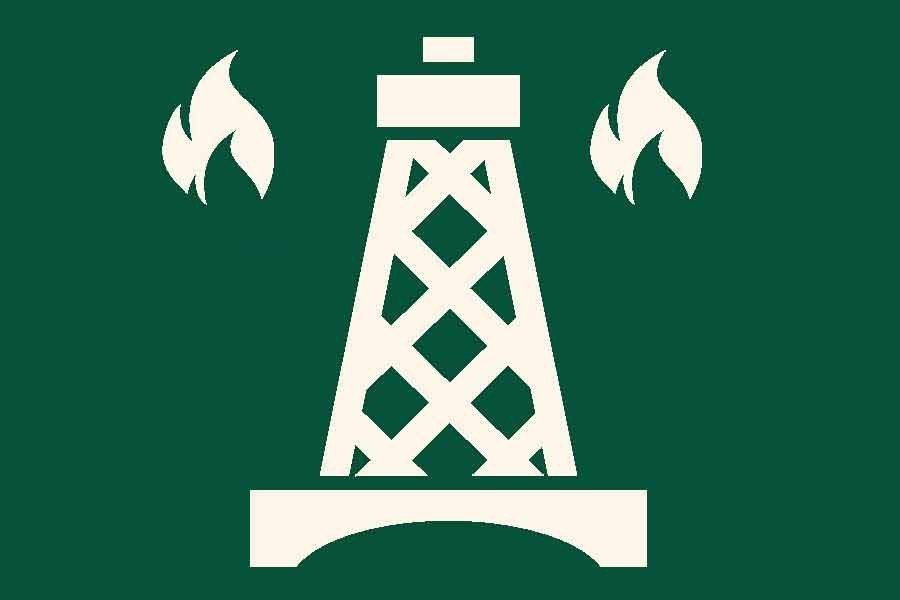
Published :
Updated :

If the government implements the proposed increase in natural gas tariffs, it could halt local production, increase import dependency, and lead to significant job losses, warned sector insiders on Sunday at a policy discussion.
The seminar, titled "Policy Consideration in Energy Affordability and Impact on Industrial Competitiveness" and jointly organised by the Economic Reporters' Forum (ERF) and Policy Exchange Bangladesh (PEB), was held at a hotel in the capital.
ERF President Doulot Akter Mala presided over the seminar, which featured a keynote address by Dr Masrur Reaz, chairman and chief executive officer of PEB. Bangladesh Energy Regulatory Commission (BERC) Chairman Jalal Ahmed was the chief guest.
Dr Masrur warned that doubling gas prices, as proposed by the government, would severely impact the economy. He stated that such a move would reduce local production, increase reliance on imports, and make employment generation extremely challenging.
He explained that higher gas prices would raise production costs in the manufacturing sector, erode competitiveness, and discourage new investments.
Sectors like cement, steel, and ceramics would become more dependent on imports, further straining the financial sector, he said. He also said increased imports would escalate the demand for foreign currency, adding to the economic pressure.
Dr Masrur cautioned that many industries could shut down due to the gas price hike, leading to a rise in non-performing loans (NPLs).
Additionally, higher energy costs would deter both foreign direct investment (FDI) and local investment, he said.
He further said Bangladesh currently receives only $2.5-3.0 billion in FDI annually, of which 70 per cent is re-investment, while Vietnam gets $18-20 billion.
Dr Masrur also pointed out Bangladesh's higher power import dependency, which is 65 per cent, compared to Vietnam (35 per cent), India (6.5 per cent), Sri Lanka (45 per cent), and Pakistan 32.4 (per cent).
He said the private sector investment against gross domestic product (GDP) has been staying between 23 per cent and 24 per cent for years, which should be above 32 per cent if Bangladesh wants to be an upper-middle-income country and 37 per cent for a high-income one.
Dr Masrur stressed the need for policy measures to maintain industrial competitiveness, including rational energy pricing, investment in renewable energy, and strategies to stabilise the power grid.
BERC's Jalal acknowledged the ongoing crisis in the energy sector, noting the situation was not as dire in the past.
Jalal emphasised that energy prices should have been adjusted gradually over time, but the lack of such measures has now created mounting pressure.
He called for a separate energy policy, excluding coal or with a distinct coal policy, and highlighted the need for seismic surveys, which were last conducted in 2009.
Despite recommendations for a 20,000km survey, BAPEX has only completed 3,000 kilometres, the BERC chairman said.
He also noted that offshore exploration has been neglected for the past 15 years, with no significant progress since the last bidding round.
Dr Ijaz Hossain, a chemical engineering professor at Bangladesh University of Engineering and Technology (BUET), said the country might witness an energy famine amid a lack of newer gas fields, which is a result of the past government's reluctance to conduct surveys for both offshore and onshore gas exploration.
He said new investors would have to invest in energy-efficient industries.
Bangladesh Chamber of Commerce (BCI) President Anwar-Ul-Alam Chowdhury (Parvez) criticised the government's plan to raise gas prices by 150 per cent for new industries and 50 per cent for expansion projects.
Bangladesh Textile Mills Association (BTMA) President Showkat Aziz Russell echoed these concerns, calling for a thorough assessment of gas pricing.
He accused officials of the previous government of prioritising personal gains by purchasing gas from the spot market, a practice that, he claimed, continues to harm the industry.
Russell mentioned the dire state of the banking sector, where mismanagement has forced the Bangladesh Bank to bail several banks out.
However, he noted that while banks are receiving support, industries are neglected. "With loan interest rates at 18-20 per cent and the depreciation of the taka against the US dollar halving working capital, industries are struggling to survive."
The BTMA president also criticised the import of sugar despite the presence of numerous sugar mills in Bangladesh, calling it a "shameful" practice that fails to generate local employment.
He warned that economic challenges are escalating daily, posing a growing threat to the nation's industrial and economic stability.
Foreign Investors' Chamber of Commerce and Industry (FICCI) President and Unilever Bangladesh Managing Director Zaved Akhtar, Bangladesh Knitwear Manufacturers and Exporters Association (BKMEA) President Mohammad Hatem, BSRM Managing Director Aameir Alihussain, and European Union Chamber of Commerce in Bangladesh President Nuria Lopez were also present.
tonmoy.wardad@gmail.com


 For all latest news, follow The Financial Express Google News channel.
For all latest news, follow The Financial Express Google News channel.